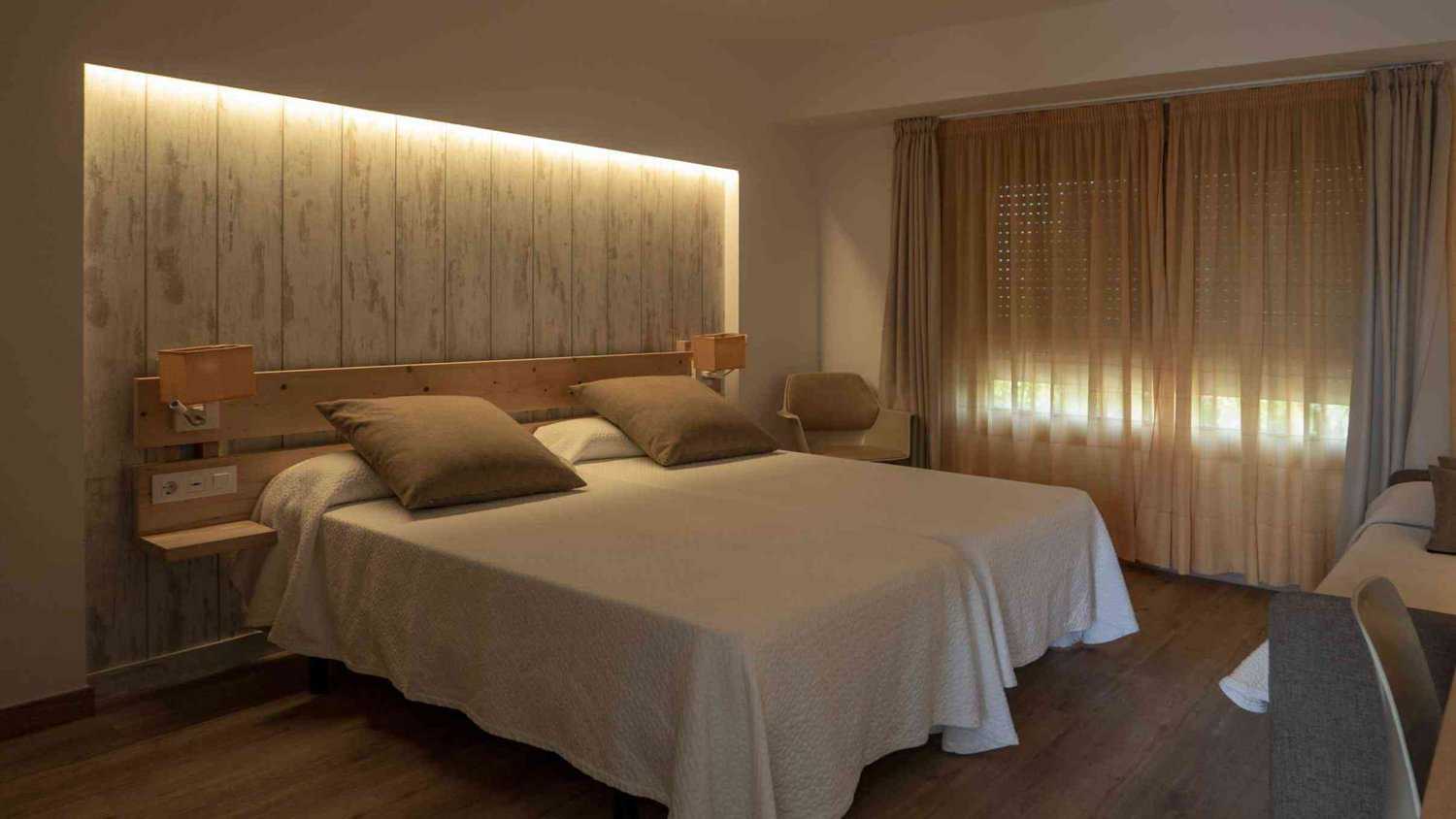#WaysToSave Energy in Your Bedroom: Tips for Conservation and Optimization
Written by


In our quest for a sustainable and eco-friendly lifestyle, energy efficiency has become a top priority. While we typically prioritise energy efficiency in frequently used areas like the living room and kitchen, we often underestimate the importance of optimising energy consumption in the bedroom, a space where we spend a significant amount of time. Adorned with numerous pretty lights, this space is often overlooked when it comes to energy conservation.
Interestingly, a study by Stanford Edu states that lighting makes up approximately 11% of a household’s total energy consumption. By implementing energy-saving practices in your bedroom, you can make a significant impact on reducing this consumption.
From utilising energy-efficient LED bulbs to choosing eco-friendly bedding, every step you take towards energy conservation in your bedroom matters. In this article, we will provide you with practical tips and insights on how to conserve and optimise energy in your bedroom. By adopting these strategies, you can create a more sustainable sleep environment while actively contributing to a greener future.
Switch to Energy-saving Lights
According to a report by the U.S. Department of Energy, lighting accounts for approximately 10% of residential energy use. By adopting a few simple strategies, you can significantly reduce energy consumption and contribute to a greener environment.
First and foremost, prioritise the switch to energy-efficient LED bulbs. These remarkable bulbs consume up to 75% less energy compared to traditional incandescent bulbs and boast a significantly longer lifespan. By replacing all light fixtures in your bedroom with LED bulbs, not only can you achieve substantial electricity savings, but you can also improve the quality of your sleep. LED bulbs emit a soothing light that promotes relaxation, ensuring you have a restful and rejuvenating sleep experience.
Utilising natural light is another effective approach. During the day, open your curtains or blinds to allow sunlight to illuminate your room. Not only does this minimise the need for artificial lighting, but it also provides a refreshing ambiance and enhances your well-being.
Installing dimmer switches is a smart investment too. These switches allow you to adjust the brightness of your lights according to your needs. By dimming the lights, you can create a cosy and relaxing atmosphere while simultaneously reducing energy consumption.
Unplug Your Electronics

Did you know that electronics in standby mode can consume up to 10% of your household energy? According to the International Energy Agency, standby power accounts for a significant portion of overall electricity usage. To combat this, a simple yet effective strategy is to turn off or unplug devices when not in use. By doing so, you can prevent standby power consumption and save energy.
Another effective approach is to power down standby mode on your electronic devices. Many gadgets and appliances have a standby or sleep mode that continues to draw power even when not actively used. By accessing the power settings and disabling standby mode, you can minimise phantom power usage.
Consider using smart power strips to conveniently manage power consumption. These strips can detect when devices are in standby mode or not in use and automatically cut off power to them. By using smart power strips, you can effortlessly reduce energy waste caused by idle electronics.
Lower Your Thermostat & Utilise Ceiling Fans
To set-up an energy-efficient bedroom, optimising heating and cooling is essential. By implementing intelligent strategies, you can create a comfortable environment while minimising energy consumption and reducing your ecological footprint.
Setting your thermostat to the optimal temperature is a crucial step. According to the U.S. Department of Energy, adjusting your thermostat by just 1 degree Fahrenheit can result in energy savings of up to 1% per year. Aim for a temperature that balances comfort and efficiency, such as 68-72 degrees Fahrenheit during winter and 75-78 degrees Fahrenheit during summer.
Utilising ceiling fans and proper ventilation can significantly enhance airflow and reduce reliance on air conditioning. Ceiling fans create a cooling effect, allowing you to raise the thermostat temperature while maintaining comfort. Additionally, proper ventilation, such as opening windows strategically, can help circulate fresh air and regulate temperature naturally.
Insulating windows and doors can prevent heat transfer, ensuring your bedroom remains cosy while minimising the need for excessive heating or cooling. Proper insulation can reduce energy loss up to 20%, as reported by the U.S. Environmental Protection Agency.
Manage Your Sleep Environment

When it comes to maximising energy efficiency in your sleep environment, small adjustments can make a big difference. Start by choosing energy-efficient bedding and mattresses. Look for products made from eco-friendly materials such as organic cotton, bamboo, or recycled fibres. These materials not only contribute to a greener planet but also provide comfort and breathability for a better night’s sleep.
Proper insulation is key for maintaining a comfortable sleep environment. Invest in quality insulation that not only helps regulate temperature but also minimises sound transmission. By reducing the need for excessive heating or cooling and creating a peaceful atmosphere, you can enjoy energy efficiency and uninterrupted rest.
Also, managing natural light is vital for promoting better sleep. Use blackout curtains or shades to block out external light sources that can disrupt your sleep cycle. If you prefer some natural light, consider installing adjustable blinds or curtains to allow for controlled exposure during waking hours.
Adapt to Sustainable Practices
In your journey towards an energy-efficient bedroom, sustainable practices play a crucial role. Recycling and reducing waste are key components of sustainable living.
According to the Environmental Protection Agency, recycling one ton of paper saves 17 trees, 7,000 gallons of water, and 463 gallons of oil. Set up a recycling system in your bedroom to properly dispose of paper, plastic, glass, and other recyclable materials.
Additionally, practice waste reduction by opting for products with minimal packaging and by reusing items whenever possible. Choosing eco-friendly materials is another important step. Look for products made from sustainable materials like bamboo, reclaimed wood, or recycled fabrics. These materials have a lower environmental impact and contribute to a healthier planet.
Donating or repurposing old items is an excellent way to give them new life. According to Goodwill Industries, donating used clothing can save around 2,500 pounds of carbon dioxide emissions per year. Instead of throwing away old furniture, clothes, or electronics, consider donating them to charities or repurposing them creatively.
Conclusion: Taking Charge for a Greener Future
- Lighting: Switching to energy-efficient LED bulbs, utilising natural light, and installing dimmer switches.
- Electronics: Turning off or unplugging devices, powering down standby mode, and using smart power strips.
- Heating and Cooling: Setting the thermostat to optimal temperatures, utilising ceiling fans and ventilation, and insulating windows and doors.
- Sleep Environment: Choosing energy-efficient bedding and mattresses, proper insulation for sound and temperature, and managing natural light for better sleep.
- Sustainable Practices: Recycling and reducing waste, choosing eco-friendly materials, and donating or repurposing old items
Remember, individual actions play a crucial role in shaping a greener future. By implementing these energy-saving tips, you can make a tangible impact on reducing energy consumption and protecting the environment.
It is our collective responsibility to make sustainable choices in our daily lives. By embracing these energy-efficient practices, not only will you save money on utility bills, but you will also contribute to conserving resources and reducing carbon emissions. So, let’s take the next step and put these tips into action.
Start by making small changes in your bedroom and inspire others to do the same. Together, we can create a more sustainable and eco-friendly future for generations to come.
people like this article
Written by

Read More About Sleep News
• 3 min read
• 4 min read
• 3 min read
• 4 min read







